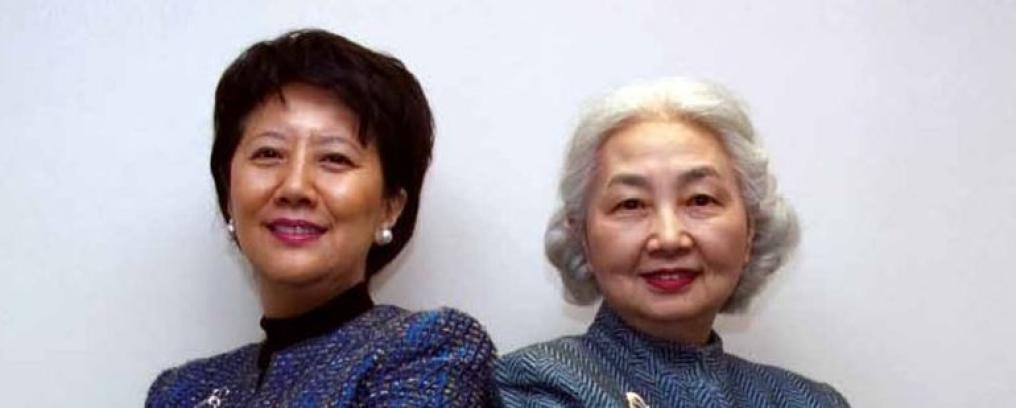It is often assumed that board secretaries have a relatively high status in mainland China – they are, after all, required by law to have the status of senior management. The latest Regional Board Secretary Panel meetings on the mainland, however, raised doubts about the status and effectiveness of board secretaries. Participants called for a better balance between their responsibilities, powers and rights.
The HKICS organised three Regional Board Secretary Panel (RBSP) meetings in Beijing, Shanghai and Guangzhou on 27 and 28 February and 5 March 2013 respectively, on the theme of 'The governance role and professionalisation of the board secretary’. Participating board secretaries of listed companies held in- depth discussions on the current status and effectiveness of board secretaries in mainland China.
At the meetings, a representative of the China Association of Public Companies (CAPCO) also presented CAPCO's major initiatives and achievements in 2012 and the organisation's work schedule for 2013. A representative of the Accounting Regulatory Department of the Ministry of Finance announced the arrangements for the phased implementation of the Basic Standard for Corporate Internal Controls, analysed the disclosures in internal control reports of listed companies in 2011, and presented the future focus of work on the implementation of internal controls.
Under-remunerated and overburdened?
Participants at the RBSP meetings discussed developments in corporate governance and the board secretary role in mainland China. One delegate said that although there have been marked improvements in the governance structure and governance standards of listed companies in China in recent years, the current development is not balanced and the governance framework of listed companies is not sound. Governance in most companies exists in form but not in substance. Specifically, there are great imbalances between the responsibilities, powers and rights of board secretaries. They are subject to great liabilities. However, despite the requirement in the company law and listing rules that they should be senior officers of the company at the level of deputy general manager, they are often marginalised in practice. Board secretaries are members of senior management in name but not vested with corresponding powers nor appropriately remunerated, they are hence unable to fully discharge the functions vested in them by law and regulations.
This situation is caused by a number of complicated factors. One delegate appealed to the regulatory authorities to establish a good macro environment for the practice of board secretaries and for a change of the name 'board secretary’ in the company law and securities law to 'board secretary- general’, 'corporate governance director’ or 'compliance director’ so that the position is properly labelled and the title is easily understood by members of the public. This would facilitate the practice and discharge of functions of the board secretary and pave the way for professionalisation. The delegate hoped that CAPCO and the HKICS, as administrative and representative bodies of the profession, would actively promote these developments.
At the meetings there was also the view that the responsibilities and sanctions imposed on the board secretary by regulatory authorities are too heavy. According to the rules of the Shanghai and Shenzhen stock exchanges, many duties including the disclosure of information are the responsibility of the board secretary. Currently, the board secretary is the key point of contact for regulatory authorities in China like the China Securities Regulatory Commission (CSRC), local regulatory bureaus of the CSRC, and the stock exchanges.
It was pointed out that information disclosure and compliance are ultimately the responsibility of the board, but boards will not take this to heart if the board secretary continues to be held responsible for any failures. It was suggested that the regulatory authorities should follow the practice of the Hong Kong market to hold the board and the directors responsible for information disclosure and compliance so that they will fulfill their duties and the board secretary will not be burdened with too much liability.
The professionalisation of board secretaries and how to discharge their functions effectively in fulfilment of their corporate governance role were also discussed at the meetings. Participants were of the view that professionalisation, standardisation, market-oriented development and internationalisation should be the direction to go in the development of the board secretary profession. Professionalisation and standardisation are basic requirements, whereas market-oriented development and internationalisation are future goals. To achieve these, it is essential to set up an accreditation system for the board secretary qualification and to establish a pool of qualified board secretaries. The speakers appealed to all board secretaries to bear in mind that status only comes with competence. They should continue to learn as they practise, keep on improving their skills and qualities and strengthening their ability to fulfil their duties. They should proactively enhance their own professionalism.
CAPCO's goals for 2013
Delegates at the meetings were also eager to hear CAPCO's representative present CAPCO's work schedule for this year. The representative said that CAPCO will seek to facilitate the development of listed companies in China, promote the merger and acquisition of listed companies in line with market developments, and promote the innovative development and establishment of internal control systems in listed companies.
CAPCO will also enhance the quality of information disclosure and raise corporate governance standards. Major programmes include improving information disclosure by enhancing the disclosure of non-financial information such as core competencies, major risks and substantial events. CAPCO is also working on a number of guidelines, such as the:
- Guidelines on the Conduct of Independent Directors of Listed Companies
- Cases of Best Practices of Independent Directors and Supervisory Board of Listed Companies, and
- Guidelines on the Work of the Supervisory Board of Listed Companies.
CAPCO is also compiling and issuing the White Paper on the Governance of Listed Companies in China in collaboration with the two stock exchanges; collaborating with the regulatory authorities to facilitate the amendment of the Standards of Corporate Governance (2002); and promoting corporate governance and the development of a market regulatory mechanism for listed companies.
Finally, CAPCO will also strengthen its own infrastructure; organise a large-scale annual function; set up five committees; enhance its organisational structure and management; strengthen communication with members; and promote international exchanges.
Internal controls
The disclosure of internal control systems of listed companies was also an issue of concern to the participants at the RBSP meetings. A representative of the Accounting Regulatory Department of the Ministry of Finance said that the Ministry has analysed and evaluated the disclosures of listed companies that put in place internal controls in 2011. Only 7% of listed companies disclosed the defects in their internal controls, lower than the 13% of the US.
The representative questioned why fewer defects in internal control systems are being disclosed in China than in the US. He suggested that it was unlikely that Chinese companies are outdoing their US counterparts in internal controls and concluded that the information disclosed is not accurate. Some defects that were not major were disclosed as major defects and some issues that should not have been disclosed were disclosed. He suggested that companies should consult the Ministry of Finance if they are not able to judge what should or should not be disclosed.
Cai Zongqi
Journalist
一般認為中國內地董事會秘書的地位相對崇高,起碼法例 規定董秘為公司的高級管理人員。最近內地舉行的地區董 事會秘書小組會議,卻對董秘的地位和效能提出疑問,並 呼籲改善董秘責權利失衡的狀況。
香港特许秘书公会于今年2月27日 至3月5日期间分别在北京、上 海和广州三地举办了主题为“董事会 秘书(董秘)的治理作用与专业化发 展”的董秘执业经验座谈会。中国上 市公司协会代表介绍了中上协2012年 开展的主要工作与取得的成绩及2013 年工作思路与重点任务;财政部会计 司代表通报了《企业内部控制基本规 范》的分步实施计划安排、2011年度 上市公司内控报告披露状况分析及今 后内控实施工作的重点,针对三次座 谈会“董事会秘书(董秘)的治理作 用与专业化发展”这一主题,参会的 诸多上市公司董秘则结合工作进行深 入探讨。
待遇欠佳,責任過大?
会议上有发言嘉宾表示,近几年来尽 管我国上市公司的法人治理结构和治 理水平有了长足的进步与改善,但目 前发展还不平衡,存在着上市公司治 理机制尚不健全,多数公司的治理还 处于“形备而实不至”的状态,特别 是还存在董秘责权利严重失衡的状 况。当前董秘法律责任重大,虽然 《公司法》和《上市规则》规定董事 会秘书为公司的高级管理人员或副总 经理级的高管,但地位却被边缘化, 名义上是高管,实际没有获得相应的 职权与待遇,不能充分发挥法律法规 赋予其的职权。
而造成这种局面的因素是多方面的,原 因复杂,强烈呼吁有关监管机构为董秘 营造良好的宏观执业环境并将董秘职位 改名,建议有关监管部门在《公司法》 和《证券法》修改时,将“董秘”称谓 改为“董事会秘书长”或“公司治理总 监”、“合规总监”等便于标识和社会 容易理解的职衔,为董秘执业履职及其 职业化创造条件,并希望中上协和公会 作为董秘行业管理组织和专业机构代表 董秘行业加以积极推动。
会议上还有嘉宾指出,当前监管机构给 予董秘的责任过大,处罚太多。按照上 交所及深交所相关规定,信息披露等的 大部分工作都是董秘的职责。现在国内 的一些监管机构,像证监会、证监局、 交易所很多事情都是找董秘,如果公司 做得不好,将在董秘的考核里扣分,实 际上许多工作确实是董事会的责任,若 只考核董秘,董事长根本不关心。建议 内地监管机构参照香港市场的作法,将 信息披露和合规的责任归于董事会及董 事,让他们担负起自身的责任,不要给 予董秘过多的责任。
董秘的专业化与职业化发展以及如何更 有效履职,发挥公司治理作用都是会议 的重要议题。会议认为董秘的发展要做 到四化,即专业化、规范化、市场化及 国际化。专业化和规范化是基础,市场 化和国际化是目标。要实现“四化”, 建立董秘的专业资格认证体系,形成董 秘专业人才库是必要途径。会议呼吁全 体董秘在现有的环境下要树立“有为才 有位”的意识,做到实践中持续学习, 不断提升自身的技能与素质,强化履职 能力,自觉地向专业化方向发展。
中國上市公司協會2013年的工作目標
针对会议呼声,中国上市公司协会代表 做出回应,她介绍了协会2013年的重 点工作,其中“一项重要任务就是促进 上市公司治理与发展环境的改善”,并 推动上市公司市场化并购重组,推动上 市公司创新发展和内控建设。
此外还将促进提高公司信息披露质 量,提高公司治理水平,主要内容包 括改善信息披露,加强公司核心竞争 能力、主要风险、重大事项等非财务 信息的披露;编写多种指引,探索制 订《上市公司独立董事行为指引》, 编制发布《上市公司独立董事、监事 会最佳实践案例》,探索制定《上市 公司监事会工作指引》,联合两个证 券交易所编制发布《中国上市公司治 理白皮书》,配合监管部门推动《公 司治理准则(2002)》的修订完善工 作;并推进公司治理,推进上市公司 治理市场化约束机制的形成。
最后加强协会自身建设,搞好年度大 型活动,组建“五个委员会”,加强 协会内部组织建设和管理工作和会员 联系工作,加强国际交流。



